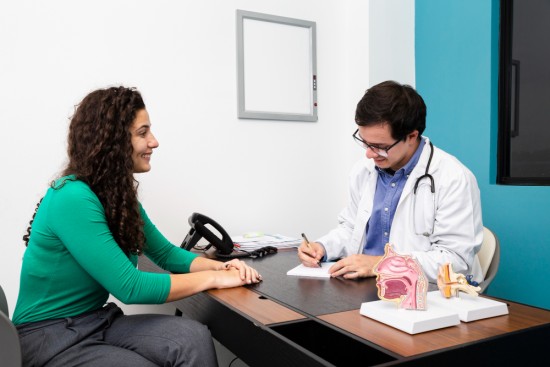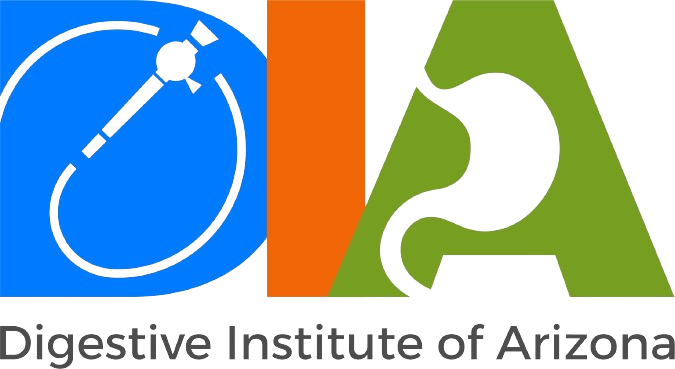Endoscopic Retrograde Cholangiopancreatography (ERCP) Procedure
- Home /
- Endoscopic Retrograde Cholangiopancreatography (ERCP)

ERCP Test In Arizona: Best Diagnosis For Pancreatic & Bile Duct
ERCP Procedure: Advanced Care at Digestive Institute of Arizona
ERCP procedure is one of the techniques used by the Digestive Institute of Arizona for diagnosing and managing pancreatic ducts and bile duct problems. The center’s experienced gastroenterologists use cutting-edge technology to perform ERCP Test safely at our clinic located in Gilbert, Arizona.


What is ERCP?
Endoscopic retrograde cholangiopancreatography (ERCP) is a minimally invasive procedure that utilizes endoscopy and fluoroscopy (X-ray imaging) to examine the bile and pancreatic ducts. These ducts connect the liver and gallbladder to the small intestines. These ducts carry bile from which enzymes needed for the digestive process are produced.
What are the uses of ERCP Procedure?
ERCP is employed for both diagnostic and therapeutic purposes.
Diagnosis
- Find out if gallstones are found in the bile duct
- Detect tumors or narrowing of the bile or pancreatic ducts
- Study unexplained symptoms such as stomach pains or yellowing eyes and skin
Treatment
- Removing gallstones from the bile duct
- Straighten out bile or pancreatic tubes have grown thinner
- Insert stents to keep ducts open
- Inject dyes that can be seen better into the ducts
Who is a candidate for a ERCP Test?
Conditions and symptoms indicating that you might be diagnosed for ERCP test include:
- Unknown abdominal pain
- Yellow skin and eyes
- Pancreatitis
- Inflammation of the bile ducts
- Biliary obstructive syndrome

What to expect during a ERCP Procedure in Arizona?
Before the procedure
You will have a preoperative discussion with your doctor about the advantages or consequences of ERCP test. The medications you are taking may have to be discontinued. Additionally, you could be told not to eat for some hours just before the process.
During the procedure
- For relaxation, you will receive medications. General anesthesia might be employed to make you unconscious.
- A gastroenterologist will pass a thin, flexible endoscope fitted with a camera and light source through your mouth, esophagus, stomach, and duodenum.
- Once the common bile duct and pancreatic opening are found, dye will be inserted through the endoscope into the ducts. X-rays will then image the ducts to look for and identify any abnormality.
After the procedure
- In case of gallstones or if it becomes necessary to widen or place a stent in the duct, treatment options can be suggested by these findings.
- The procedure is followed by monitoring until you recover well enough to allow you to leave. Common side effects include mild pain in your throat or bloating, symptoms that usually vanish soon afterward.
Risks and complications of ERCP Test
Though ERCP test is usually harmless, it has some dangers and difficulties. They entail but are not limited to:
- Pancreatitis
- Infection
- Bleeding
- Allergic reaction to the contrast dye
Benefits of Choosing Digestive Institute of Arizona for an ERCP Test include
- GI physicians with expertise and experience
- Highly modernized and advanced equipment and technology enables minimally invasive treatment options that allow for quick recovery time
- Dual procedures for diagnosis or therapeutic purposes.
Schedule an Appointment for ERCP Test
If you have any inquiries or concerns about ERCP, please contact our gastroenterologist at the Digestive Institute of Arizona. We are dedicated to providing individualized attention and ensuring optimal results for all our patients.
Frequently Asked Questions About ERCP Procedure
In some cases, other imaging tests, such as magnetic resonance cholangiopancreatography (MRCP) or ultrasound, can also be considered. However, in cases of treatment like gallstone removal, ERCP can be the best possible option.
The ERCP procedure is usually completed within 30-60 minutes. Nevertheless, this time may differ depending on the complexity of the case.
Most people have already recovered and can leave for home within hours. You may feel some mild discomfort, but your doctor will help you manage any post-procedure symptoms.
